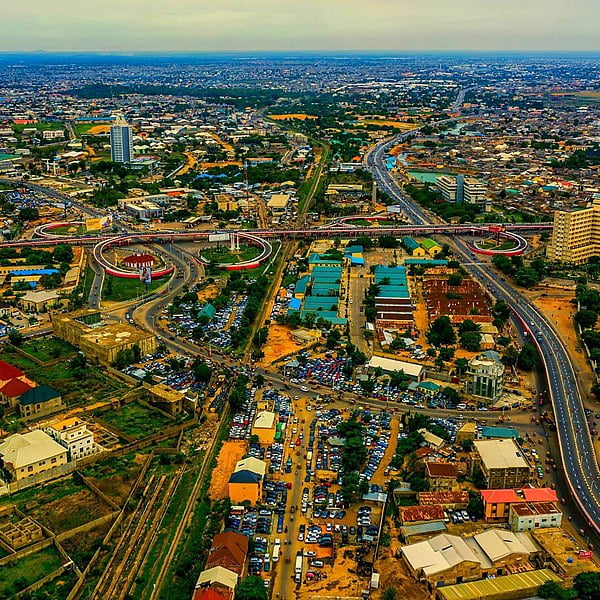Nigerian Literature – Key Authors and Their Best Works
Nigerian literature is one of Africa’s richest literary traditions, with works that reflect the country’s diverse cultures, complex histories, and…

Welcome to Kano, one of Nigeria's oldest and most historically significant cities. As the capital of Kano State, it is known for its rich cultural heritage, bustling markets, and vibrant traditions. This guide is designed to help you navigate Kano, highlighting key attractions, activities, and tips to ensure your visit is both enjoyable and memorable.

Mallam Aminu Kano International Airport (MAKIA) is the primary entry point for international visitors. It is well connected to major cities in Nigeria and select international destinations. Ensure your travel documents, including a visa, are in order before you arrive.
Kano is accessible by road from other Nigerian cities. Major highways leading to Kano are generally in good condition, but travel times can vary due to traffic.
Nigeria’s rail network connects Kano to several major cities, providing a comfortable and scenic way to travel.
Taxis are readily available but agree on a fare before starting your journey. Ride-hailing services like Bolt are also operational in Kano.

Buses and tricycles (known locally as "Keke NAPEP") are common but can be crowded.
Renting a car with a driver is a convenient option, especially if you plan to explore beyond the city.
The Kano Emir's Palace, also known as Gidan Rumfa, is one of the oldest and most significant traditional palaces in Nigeria. Built-in the 15th century, it serves as the residence of the Emir of Kano. While the palace itself is not open to the public, the surrounding area offers a glimpse into the rich history and culture of Kano.

The ancient city walls of Kano, constructed in the 14th century, are a testament to the city's historical significance. These walls, originally built to protect the city from invaders, stretch over 14 kilometres. Visiting the city gates, such as the famous Kofar Mata and Kofar Na’isa, provides insight into Kano’s past.

Kurmi Market, established in the 15th century, is one of the oldest and largest markets in West Africa. Here, you can find a wide array of goods, including traditional crafts, textiles, leather goods, and spices. The market is a bustling hub of activity and offers a vibrant shopping experience.
The Gidan Makama Museum, housed in a 15th-century building, showcases the history and culture of Kano. The museum's exhibits include traditional clothing, crafts, and artefacts from Kano’s past. It’s an excellent place to learn about the city’s rich heritage and historical significance.
Dala Hill is a historical and cultural landmark in Kano. The hill is believed to be the site of the first settlement in Kano, dating back over a thousand years. Climbing Dala Hill provides a panoramic view of the city and an opportunity to connect with Kano's ancient roots.
The Great Mosque of Kano, also known as the Masjid Al-Qiblatayn, is one of the largest and most significant mosques in Nigeria. The mosque, originally built in the 15th century and later reconstructed, features impressive Islamic architecture and serves as a spiritual centre for the Muslim community in Kano.
The Kofar Mata Dye Pits, established over 500 years ago, are one of the last remaining dye pits in Africa where traditional dyeing methods are still used. The pits are famous for their indigo dye, and visitors can observe the dyeing process and purchase beautifully dyed fabrics.
The Kano Zoological Garden, located in the heart of the city, is home to various animal species and offers a relaxing environment for visitors. It’s a great place for families and provides an opportunity to learn about wildlife conservation.
Like any major city, it's best to avoid walking alone at night, especially in unfamiliar areas. Use trusted transport options instead.
Keep your valuables, such as jewelry, smartphones, and large amounts of cash, out of sight to avoid attracting unwanted attention.
While Kano offers delicious street food, it’s advisable to eat at reputable restaurants or food stalls where hygiene is a priority.
Exchange your money at official banks or licensed exchange bureaus to avoid being scammed.
Kano is a predominantly Muslim city with traditional customs. Dress modestly and show respect for local cultures and practices.
Kano can be hot and dry, so drink plenty of water. Bottled water is widely available and recommended.
Protect yourself from the tropical sun by applying sunscreen, wearing hats, and using sunglasses.
Keep a list of emergency contacts, including local police (112 or 199) and your country's embassy or consulate.
While credit cards are accepted in many places, it's useful to have cash for smaller purchases and in areas where electronic payment isn’t available.
Although English is widely spoken, learning a few basic phrases in Hausa or Pidgin English can enhance your experience and help you connect with locals.
Local SIM cards are affordable and provide reliable internet access. MTN, Airtel, and Glo are popular service providers.
Nigerians place a high value on greetings. A simple “Good morning” or “Good afternoon” goes a long way.
Dress modestly, especially when visiting religious sites or traditional areas. Women should cover their shoulders and knees.
Show respect to elders and authority figures by addressing them appropriately and using titles.
Kano is a city of deep historical roots and vibrant cultural traditions. Whether you're exploring its ancient markets, visiting its historical landmarks, or enjoying its local cuisine, Kano promises an unforgettable experience. With this guide, you're well-equipped to navigate the city and make the most of your visit. Welcome to Kano – a city where history and tradition come alive!
Nigerian literature is one of Africa’s richest literary traditions, with works that reflect the country’s diverse cultures, complex histories, and…
The Oyo Empire: The History of a Powerful African Kingdom The Oyo Empire stands as a testament to the rich…
Bashorun Gaa: The Rise and Fall of a Tyrant in the Oyo Empire Bashorun Gaa, a prominent figure in the…
The Eyo Festival of Lagos State The Eyo Festival, also known as the Adamu Orisha Play, is one of the…
Experience The Magic of The Calabar Carnival: Africa’s Biggest Street Party The Calabar Carnival, often referred to as “Africa’s Biggest…
The Ancient Kano City Wall is a remarkable historical and architectural marvel located in Kano, the largest city in northern…
Osun Osogbo Sacred Grove: A Journey into Nigeria’s Spiritual Heartland The Osun Osogbo Sacred Grove is a place of profound…
Exploring The Idanre Hill, Ondo State Nestled in the heart of Ondo State, Nigeria, The Idanre Hill stands as a…
Discover the Magic of Erin Ijesha Waterfall: A Hidden Gem in Nigeria Nestled in the heart of Nigeria is a…
Ilorin Emirate Durbar: A Display of Culture and Heritage The Ilorin Emirate Durbar is a vibrant cultural festival held annually…